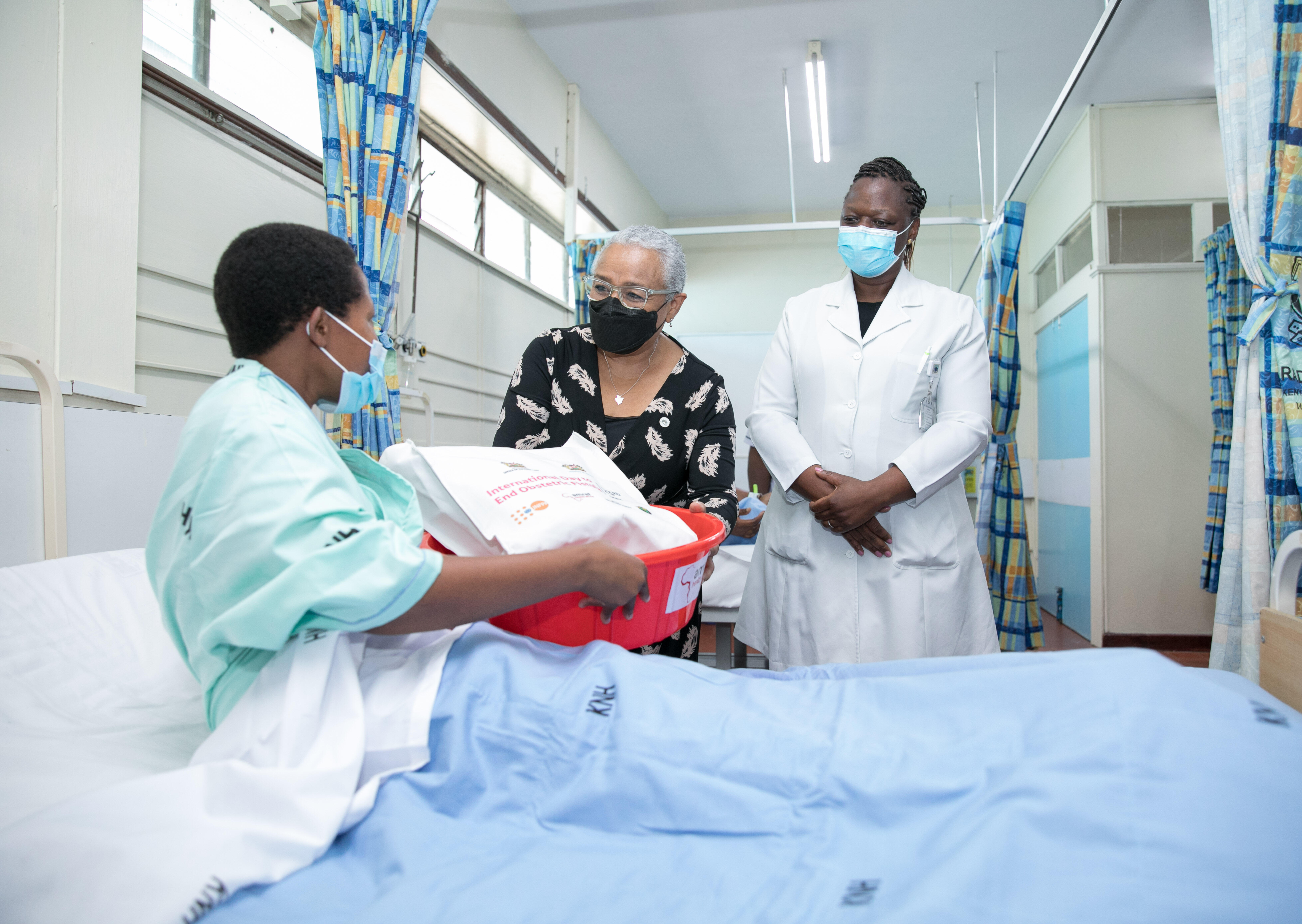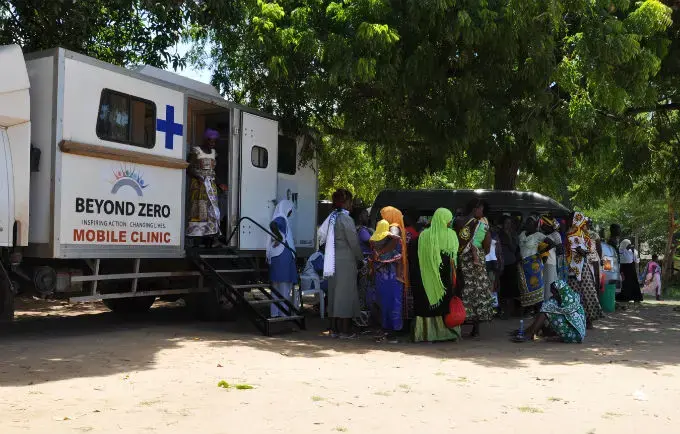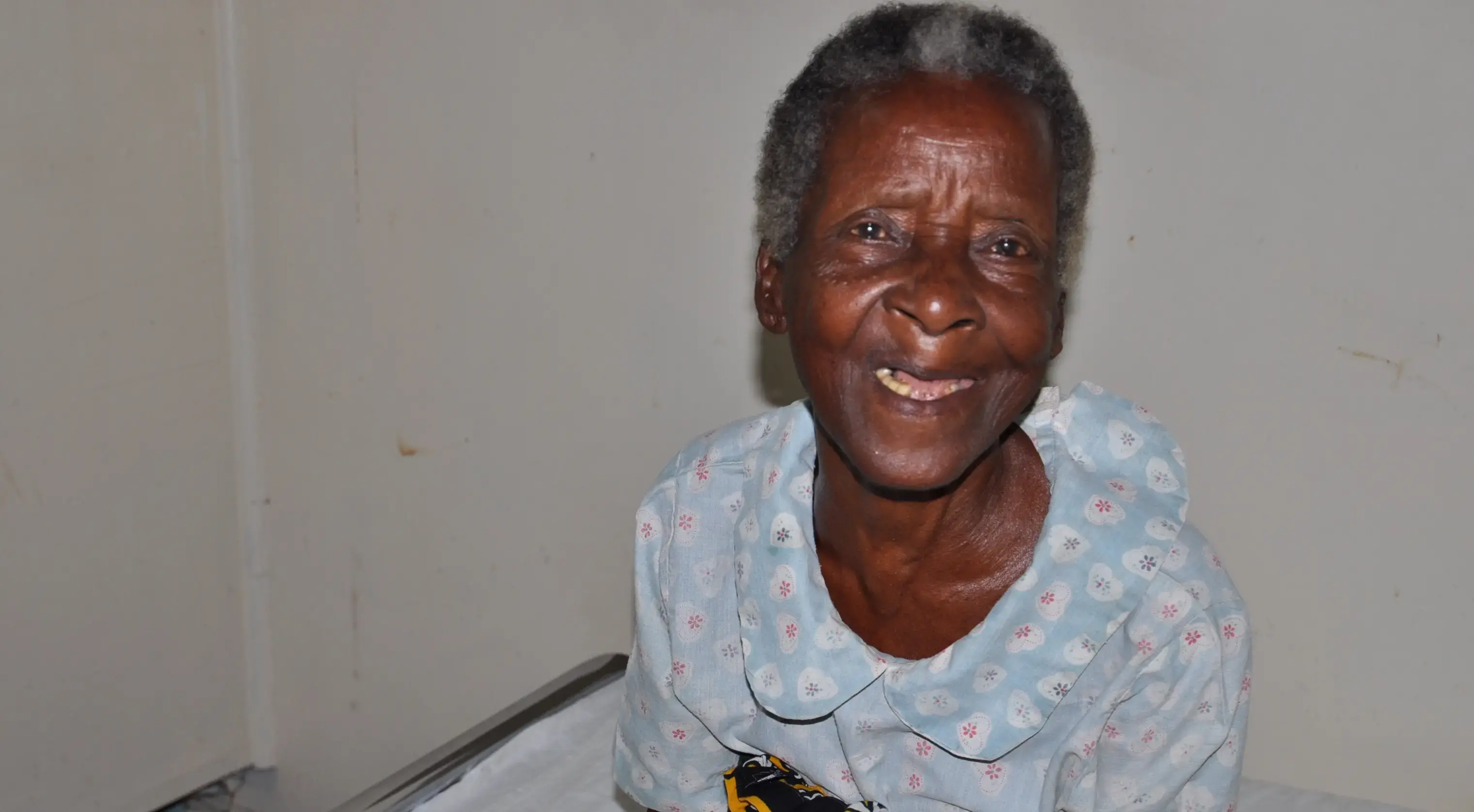Mary Munuhi* has travelled 200 kilometers from her home in Meru to the Kenyatta National Hospital located in Kenya’s capital city Nairobi. She is here to seek medical help at a free fistula camp organized by the hospital with support from UNFPA and partners.
Mary developed fistula after enduring a difficult labour while giving birth to her fifth child. Tragically, her baby died during childbirth, a common occurrence when a mother undergoes prolonged and obstructed labour. “A few days after I left the hospital, I noticed that I could not control my bladder and I was always leaking urine. It got so bad that I had to wear diapers every day,” she says. Mary’s husband abandoned her and the children after the condition persisted for three months.
Prohibitive cost that hinders access to treatment
Obstetric fistula can be repaired through surgery, but many women are unable to access treatment due to the cost involved. This is the case for Sheila,* a 30 year old mother of two who has been living in Nairobi as an immigrant.
She and her husband moved to Kenya seven years ago in search of work. “I gave birth to my second child in October 2019, and later came to discover that I had developed fistula when I began leaking both urine and stool,” says Sheila.
I noticed that I could not control my bladder and I was always leaking urine. It got so bad that I had to wear diapers every day
When Covid-19 struck, her husband was laid off from his job, and they had no money for her to seek medical treatment. “ I tried to get on the national health insurance program so that the cost would be covered, but as a foreigner I could not enroll,” she adds.
Accessing treatment during the pandemic was made even more expensive due to government health protocols that required patients to undergo a Covid-19 test before being admitted for surgery. Depending on the health facility, a test can cost as much as $30-$70.
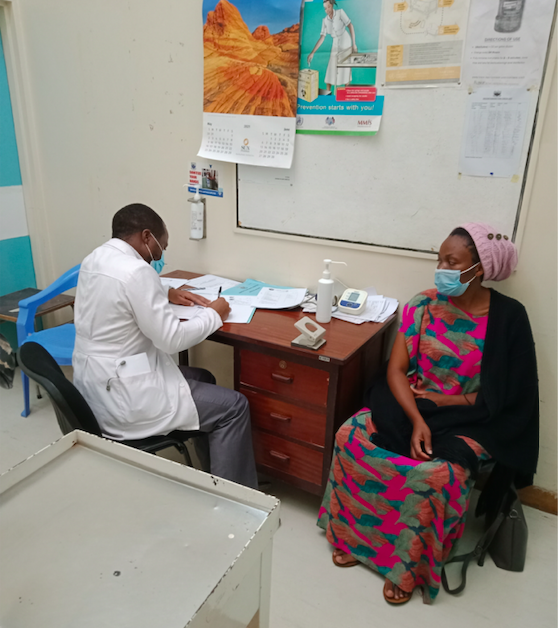
To mark the International Day to End Obstetric Fistula, 50 women including Sheila and Mary will receive free repair surgery at the weeklong fistula camp. They have come from as far as Marsabit county, located nearly 600 kilometers away from the city.
Beatrice Oguttu, a senior midwife at the Kenyatta National Hospital reproductive health department says many of the patients arrive at the hospital in low spirits.
Often ostracized by the community due to their condition, any hope of treatment such as the fistula camp is a much needed reprieve from the quiet indignity they have endured.
“A lot of these women have suffered social isolation because of their incontinence which can cause a bad smell. Today I attended to a woman who was laid off from her job after her co-workers complained of her smell,” says Oguttu.
She has referred many women to a counselor for help with the psychological trauma caused by living with fistula.
“The common cause of fistula amongst patients we attend to is obstructed labour. But we know the condition can be prevented if every mother has access to skilled birth attendance at a health facility with the right equipment and supplies to provide emergency obstetric care,” adds Oguttu.
Restored dignity at Kakuma refugee camp
Over the last few years, more than 1,400 women have benefited from free fistula treatment offered during medical camps supported by UNFPA.
They include Regina Napeyok, a 25 year old refugee from South Sudan living in the Kakuma refugee camp. She gave birth four years ago with the assistance of a traditional birth attendant while still living in South Sudan.
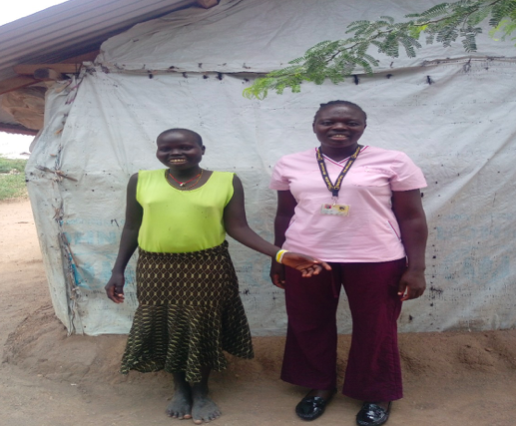
follow-up visit at neighbouring Kalobeyei refugee camp.
“I struggled with the baby for 3 days before I delivered him only for him to die soon afterwards”, she narrates. Regina was able to get treatment at the Gynocare hospital - Eldoret in March 2020, and has now recovered fully.
“I am no longer ashamed to be around people. I can comfortably carry out my day to day activities without being too conscious of myself, and I couldn’t be happier,” she says.
The 2021 fistula camp was supported by UNFPA in partnership with Beyond Zero Initiative, AMREF Health Africa, Safaricom Foundation, Flying Doctors Society of Africa and the Ministry of Health.
Fistula can be prevented if every mother has access to skilled birth attendance at a health facility with the right equipment and supplies to provide emergency obstetric care.
*Names have been changed to protect privacy.

